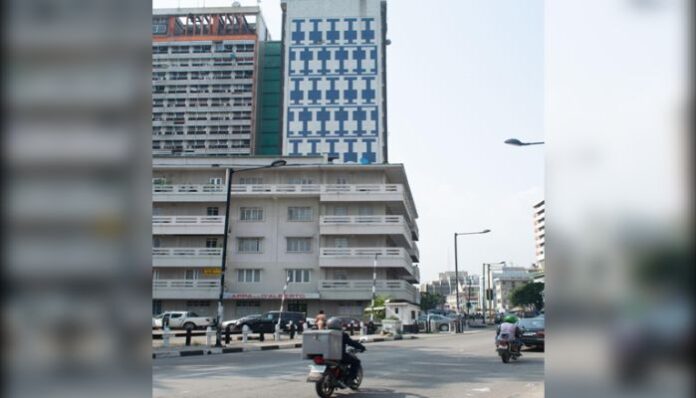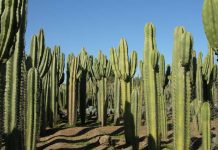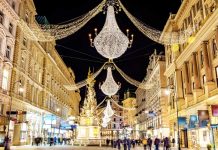The pilot study to understand the perspectives of residents on recreation, leisure and tourism was launched on September 27, 2022, in a virtual event.
The project, which focused on Lagos, aimed to understand residents’ and key stakeholders’ perspectives on recreation, leisure and tourism, explore the spatial structure of recreation, leisure and tourism on Lagos Island at the neighbourhood level, and bridge the gap between urban planning and recreation, leisure and tourism by investigating the relationship between the phenomena.
The key findings and lessons learnt from the study include; residents and business owners perception of leisure time and relaxation is confined to the free time available before and after work, while safe and secure recreational open spaces, parks, or playgroups within close proximity to residents’ homes would contribute to a strong feeling of community and belonging.
Moreover, self-employed business owners and craftsmen are not able to engage in recreational activities because of inadequate funds, lack of time, security concerns, lack of awareness and lack of accessibility to the recreational facilities.
The highlight of the event was the panel discussion moderated by Dr Adun Okupe, which featured panellists such as: Abdul Latif Muse, executive secretary, Victoria Island and Ikoyi Residents Association (VIIRA) and former MD, Access Bank Plc; Ajoke Silva, multi-award-winning veteran theatre practitioner and manager, Glover Memorial Hall, Lagos Island; Chuka Ihonor, principal architect, ARG Studio and convener, Open House Lagos; Dolapo Omidire, real estate research analyst and founder, Estate Intel, and Theo Lawson, lead architect, Freedom Park Lagos.
Ajoke Silva, speaking on how the creative industry can contribute to urban development and planning, commented: “One of the key things to be done is to have events that include community members and others outside of the community. The creative industries can provide content for activities that appeal to different users, old and young, residents and visitors. However, the question of space, financing and funding comes in. Concessions should be for longer periods of about 30 years to attract investors, and to ensure a place gets established and is not susceptible to the changes of political administrations.”
Content creation in terms of cultural activities and space design needs to be representative in a way that does not alienate existing residents, whilst also elevating and showing that another way is possible. This requires careful thought to maintain balance. It is important that residents need to know that some of the interventions are for them and they are included.
Abdul Latif Muse spoke on the importance of resident associations in building more cohesive communities.
“Cohesiveness is a realisation of the components of individuals (business owners, corporate bodies) in the society. Residents need to understand that they share common access to facilities, such as the drainage system, transportation system and roads. Resident associations should focus on ensuring that members of the community are not exposed to security threats and also form a strong collective that can reach out to the government on the needs of the community.
“One key function of resident associations is the ability to self-regulate and self-monitor, although one challenge is for corporate bodies who are part of the community, to see themselves as being responsible for the safety, security and smooth functioning of the community,” Muse said.
Read also: Time to rethink road transportation in Lagos
Chuka Ihonor highlighted the need for developing communities to design more inclusively for residents to have a better living experience. He said: “Cities need to be living spaces, we need a city that grows organically, a green city with spaces for residents, not necessarily parks, but they can be parklets. We need to have a collaged city of historical and contemporary architecture, and develop living spaces that are representative of their users, both old and new.”
Dolapo Omidire noted that there were irregularities between developers and the enforcement of policies that allow for green spaces in estate development, stating: “We need to look at the regulators and their alignment with what developers are doing, and what users want. Then we can see a change. It is important that regulations are enforced, and it is also important that developers are aware of these regulations. The first step is to identify what is needed in the design and development of an estate. There are estates with green spaces, but these cannot be left to the discretion of the developers alone. We need to start to incorporate amenities that can increase and enhance the value of life. “
Sharing his experience on how he designs public spaces and the lessons learnt from the Freedom Park project, Theo Lawson said: “Public spaces have to be inclusive and road designs should be designed properly for the use of different individuals in the community. Areas need to be decongested and old buildings should be converted into more useful places that meet the socio-economic needs of the community. Spaces need to be redesigned for safety, security and preservation purposes. It is a long process, and one needs to be patient and resilient.”
The launch event was closed by Olamide Ejorh of Lagos Urban Development Initiative, partners for the project, amid appreciation to Henrich Boll Foundation for their support of the project’s data collection phase.
The Lagos Island project was a pilot study and is open to conducting similar research in other communities in Lagos and Nigeria as cohesive communities are important for the safety, security and wellbeing of residents, businesses and visitors.










